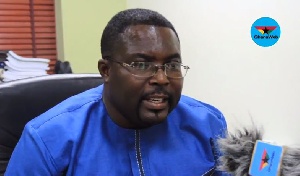Accra, Nov. 23, GNA - Dr Chapal Khasnabi, a WHO official from Geneva, on Wednesday called for a total revamp of the National Centre for Prosthetics and Orthotics to help provide better livelihood for persons with various forms of disabilities. He said currently the centre, which is under-resourced, could provide service to only two per cent of its patients due to lack of personnel and financial assistance.
Dr Khasnabi was addressing participants at the three-day National Forum on Health, which is under the theme, "Creating Wealth Through Health". It is aimed at initiating a dialogue on a new paradigm for health and formulate a new health policy to replace the existing policy that expires in March 2006. He said Ghana's disability population of about two million was a figure that required critical and urgent intervention to restructure health policies and programmes that would cater for disabilities and ensure sustainable livelihood if the Millennium Goals (MDG) was to be achieved.
"The increasing rate of the population of persons with disabilities in Ghana has been attributed to poor health care, illiteracy, poverty, poor environmental care as well as lack of rehabilitation facilities and there is the urgent need develop strategic policies and programmes to combat the causes," Dr Khasnabi said.
He noted that the danger of neglecting such a huge health problem could impact negatively on efforts to attain the MDGs, as more illiteracy and poverty levels were bound to emerge. Dr Khasnabi called for a multi-sectoral strategy of dealing with the problem with the aim of including mainstreaming disability programmes at district and community levels and ensuring a strong community-based rehabilitation programme. He noted that though most disability cases were preventable, late detection of danger signs, poor nutrition, poverty and lack of immediate health care had worsened most cases such as clubfoots, hearing impairments and blindness resulting from cataract and refractive errors.
Dr Khasnabi said since the problem existed mostly among the low-income group, there was the need to involve the services of Community Health Improvement Project (CHIP) in the prevention of avoidable blindness and early detection of some of the deformities that occurred in children.
"We must also intensify public educational programmes on environmental cleanliness, sustenance of water bodies and reporting for early treatment," he said.
Dr Khasnabi urged the Ministry of Health to partner with other stakeholders in initiating comprehensive community-based rehabilitation programmes in all the regions and ensure that people with disabilities had equal rights and opportunities. 23 Nov. 05
Health News of Wednesday, 23 November 2005
Source: GNA
















